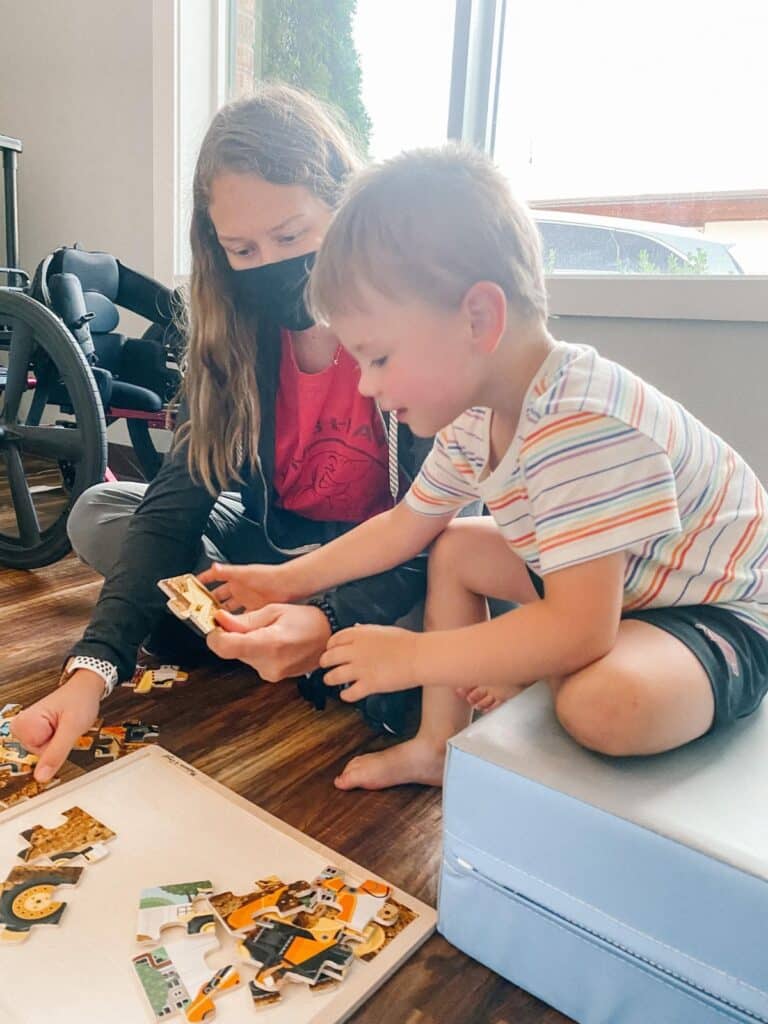Early intervention in pediatric occupational, physical and speech therapy services is a proactive and essential approach to supporting children’s development and addressing potential challenges at an early age. There are numerous benefits of early intervention in pediatric therapy, which can have a very positive impact on a child’s overall growth and future success.
- Timely Identification of Developmental Delays and Challenges: Early intervention allows for the timely identification of developmental delays and challenges in children. By identifying these challenges early on, therapists and parents can work together to create targeted intervention plans tailored to the child’s specific needs.
- Optimal Brain Plasticity and Learning: During early childhood, the brain is incredibly malleable, exhibiting a high degree of neuroplasticity. This simply means the brain is pliable, and has the ability to change. Intervening during this crucial period maximizes the brain’s ability to adapt and learn, leading to more positive outcomes in various developmental areas.
- Improved Long-Term Outcomes: Research consistently shows that children who receive early intervention in pediatric therapy achieve better long-term outcomes compared to those who do not. Early support in OT, PT and Speech Therapy can lead to improved academic performance, social skills, and overall independence in daily living.
- Family Involvement and Empowerment: Early intervention is not just about the child; it involves the entire family. Therapists work closely with parents and caregivers, empowering them with knowledge, strategies, and resources to support their child’s development effectively. It is important that we are always collaborating with each individual and their family to best serve the client’s needs and provide the right support to their families. By providing support and resources, therapy helps reduce stress and anxiety for parents and caregivers, promoting a more supportive and nurturing environment for the child.
- Enhancing Social and Communication Skills: Early intervention can significantly impact a child’s social and communication skills. Therapists use various evidence-based approaches to foster language development, social interactions, and emotional regulation in young children. Some of these examples include AAC devices, PEC systems, and play opportunities with others including imitative, parallel and reciprocal play activities.
- Addressing Sensory Processing Issues: Sensory processing challenges can significantly impact a child’s daily life. Early intervention helps identify and address these issues, enabling the child to better process sensory information and be able to attend, focus and engage in various activities with confidence across all of their environments.
- Building Self-Confidence and Resilience: Children who receive early intervention support often develop higher levels of self-confidence and resilience. As they see their progress, they gain a sense of accomplishment and belief in their abilities, which positively impacts their overall self-esteem.
Early intervention in pediatric therapy is a powerful tool that can positively influence a child’s development and future. By identifying challenges early, involving families, and providing targeted support, we can help set children on a path to success and help them reach their full potential. Our occupational, physical and speech therapists play a crucial role in shaping the lives of young children, enabling them to reach and achieve their individual goals, and supporting the families on their journey to continued growth and success.

